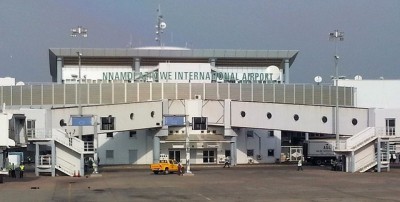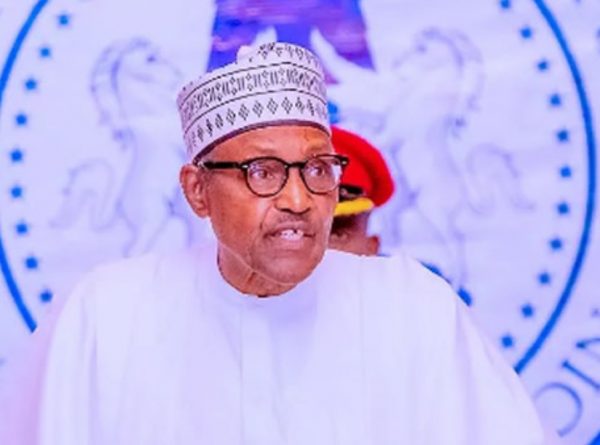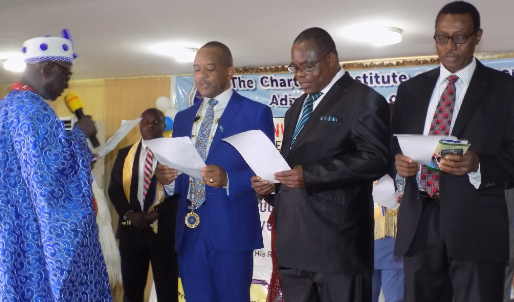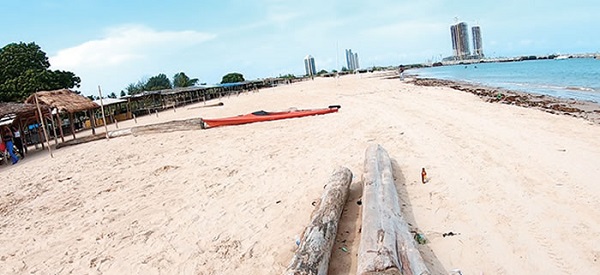Presidency To Launch Maritime Book “Harnessing Nigerian Maritime Assets”
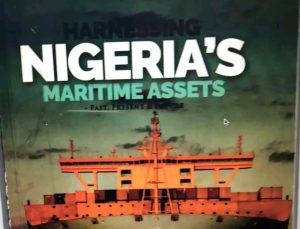 The Presidency is set to launch a critical maritime book titled; “Harnessing Nigerian Maritime Assets” on Tuesday, August 28th at Transcorp Hilton Hotel, Abuja.
The Presidency is set to launch a critical maritime book titled; “Harnessing Nigerian Maritime Assets” on Tuesday, August 28th at Transcorp Hilton Hotel, Abuja.
The book which was published by the Executive Director, Finance and Administration at Nigerian Maritime Administration and Safety Agency (NIMASA), Mr. Bashir Yusuf Jamoh, chronicles the development of the nation’s maritime sector from the precolonial era to the present situation; while it also reveals how foreign shipping firms are milking Nigeria dry through sharp practices.
While the President, Mohammadu Buhari would grace the ocassion as the Special Guest of Honour; the Vice President, Prof. Yemi Osibanjo would be the Guest of Honour and other notable digitaries to have the honours of lauching the book include; the Minister of Transportation, Hon. Rotimi Amaechi who features as Chairman of the ocassion, the former Governor of Lagos State, Alhaji Bola Ahmed Tinubu.
The Governors of Kaduna and Ogun States; Nasir El-Rufai and Ibikunle Amosun are Chief Hosts while the Director General of NIMASA, Dr. Dakuku Peterside plays the role of the host. The Royal Fathers of the ocassion are; the Emir of Zazzau, HRH Dr. Shehu Idris and the Emir of Kano, HRH Sanusi Lamido Sanusi (II).
Other heads of parastatals such as the Managing Director of Nigerian Ports Authority (NPA) Ms. Hadiza Bala-Usman, the Executive Secretary of Nigerian Shippers’ Council (NSC) Barr. Hassan Bello and the Acting Managing Director of the National Inland Waterways Authority (NIWA) Mr. Danladi Ibrahim are special guests at the event.
The book authoritatively describes as ‘criminal’, the negligence of the nation’s maritime sector, a situation which could easily have made the nation, a wealthy maritime country.
The author, an insider and regulator in the nation’s maritime sector observed that about 85% of marine vessels operating within Nigerian domestic waters i.e. Cabotage, are owned by foreign shipping operators.
He presented detailed maritime traffic analysis from 2004 to 2013 revealing the total of number vessels calling at Nigerian ports and only insignificant number of vessels handled by indigenous operators through hire, chartered mode and other forms which according to the report represented only 4.21% of the total performance, while foreigners dominated with 95.79%.
Jamoh also explained the fiscal contribution of maritime services between 2004 and 2013, analysing the cargo throughput into Nigerian ports in metric tons revealing the volume handled by indigenous operators versus the sum handled by foreign players.
According to the soon to book already in print “only about 5% of product tankers, presently engaged by the PPMC (NNPC) in coastal lifting of petroleum products are owned by Nigerians. Such vessels earn about $3,000 to $8,000 a day, which amounts to about US$2.88 million for the 12 vessels monthly. The PPMC spends annually US$34.56million on coastal lifting out of which about $32.67 million is repatriated out of the country annually.
The book reveals that the oil producing companies may have spent about $20 billion to work their various offshore fields this year. The estimated budget of the maritime (shipping) component of this expenditure is about 10% which is about $2 billion a year. Over 75% ($1.5 billion) of this revenue is repatriated offshore annually because Nigerians do not own, operate and man the offshore vessels and services supporting offshore oil operations.
The author, has invited all categories of maritime stakeholders to attend the notable event on Tuesday next week even as he admonished them to make efforts to acquire and study the book.
By Kenneth Jukpor



